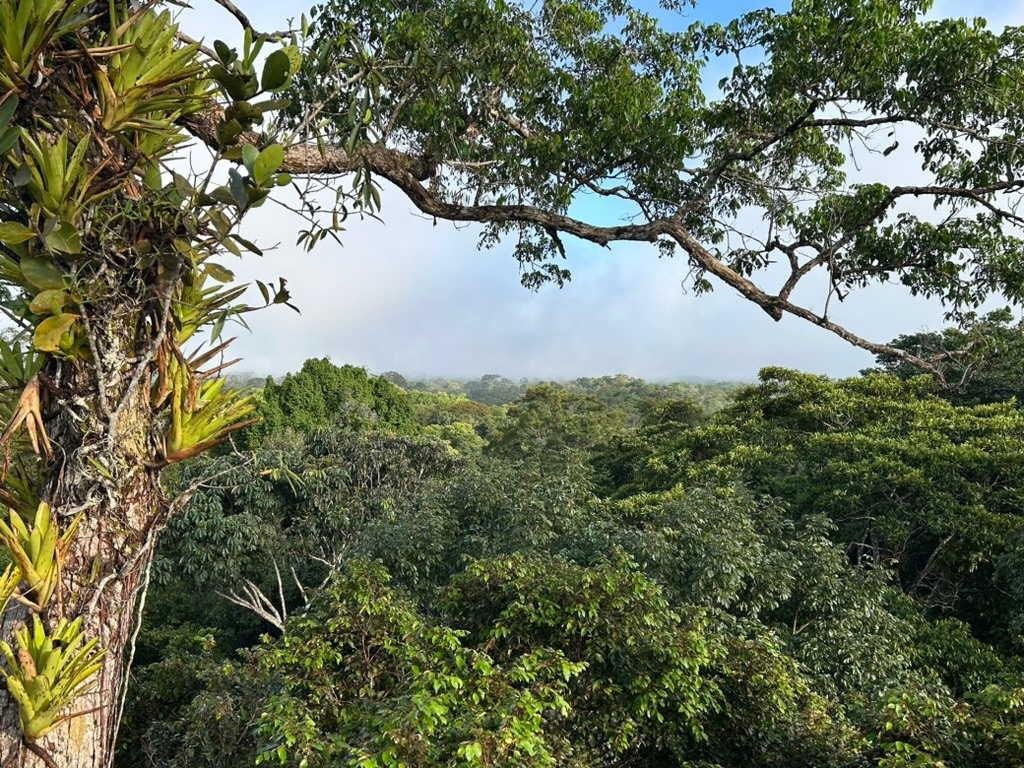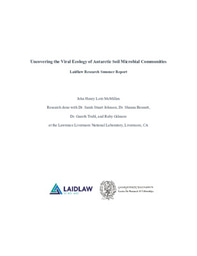LiA Showcase - Amazonian Mammal Conservation in Loreto, Peru

“What does conservation mean to you?” This is the question that began my Leadership in Action summer. Browsing the smiling, mud-caked faces of the Conservation Leaders who came before me on the ACEER website, and reading their diverse perspectives on conservation, enriched from their experiences in the Peruvian Amazon, it was hard to imagine what I was getting myself into.
The first period of my LiA was spent in preparation. As I quickly learned, living in the remote wilderness takes extensive planning, practicing thinking critically through possible scenarios, and fully understanding and being responsible for the risks we were about to take on.
Besides any physical preparation, communication was by far the most important quality we needed to cultivate. On a fundamental level, Spanish was going to be the backbone of our expedition's success, not only for building connections with the local Maijuna people, but also for our own safety, so we could understand their instructions and follow their guidance through the dangers of the jungle. And, as I quickly learned from our time in Sucusari, building relationships through respect and proper communication gave the trip deeper meaning, and bridged the science and data to real world impact, not only on a global conservation level, but on a personal level.
During the trip, I was very lucky to be surrounded by a tight nucleus of incredible leaders. While our group was no more than eighteen in total, the dedication everyone brought each day made us powerful. My student peers from US and Peruvian universities were a constant source of inspiration, spanning a diversity of leadership styles and skillsets that all converged to make our group a more effective whole. It is rare to find yourself in an environment where you’re comfortable placing your health and safety in the hands of each and every person around you, and to not only feel supported by your peers, but to grow from their energy and maintain a positive attitude despite the challenges we faced. This trust was no more apparent than in our relationships with our Maijuna guides. Besides being the coolest new friends we will ever meet, their expertise was our lifeline and primary source of security as we trekked deep in the jungle.
Too often the critical role of community and local ecological knowledge gets lost in the formalities of conservation academia. As Dr. Brian Griffiths, our project leader, repeatedly emphasized to us, the goals of our science and the goals of our service were always ultimately to support the goals of the Maijuna. At the end of the day, we were guests in their ancestral lands, in their home, and it was an immense privilege to be received by their kindness and hospitality, especially considering the history of oppression and exploitation by outsiders that the Maijuna people have faced in the past. What mattered to our guides and the people of Sucusari was the preservation of their culture and the ecosystems they are a part of, and that their families and future generations may be healthy and secure. Our work to quantify mammalian biodiversity in this critical region of the Amazon and to model the sustainable hunting practices of the Maijuna mattered because it served as a means to the end of helping the Maijuna achieve deeper sovereignty over their land. Science becomes more impactful when it harmonizes with the ecological knowledge that indigenous people have maintained for centuries. Even more so, my experience working with the Maijuna community has taught me that conservation isn’t just about pristine ecosystems, but about cultivating sustainable, circular relationships between humans and wilderness.
Acknowledgments:
I would like to sincerely thank the Laidlaw Scholars Foundation, whose funding made this opportunity possible for me. In addition, I am deeply grateful for the work done by Colleen Dougherty and the Georgetown University Laidlaw Scholars Programme, and for all of their support these past two years. I would additionally like to acknowledge Dr. Brian Griffiths of the Georgetown Earth Commons Institute for his mentorship and leadership guiding this project, and for the incredible people at OnePlanet, ACEER, who made this project possible. Finally, thank you to FECONOMAI and the people of Sucusari for your guidance and wisdom, and for welcoming us into your community.

Please sign in
If you are a registered user on Laidlaw Scholars Network, please sign in